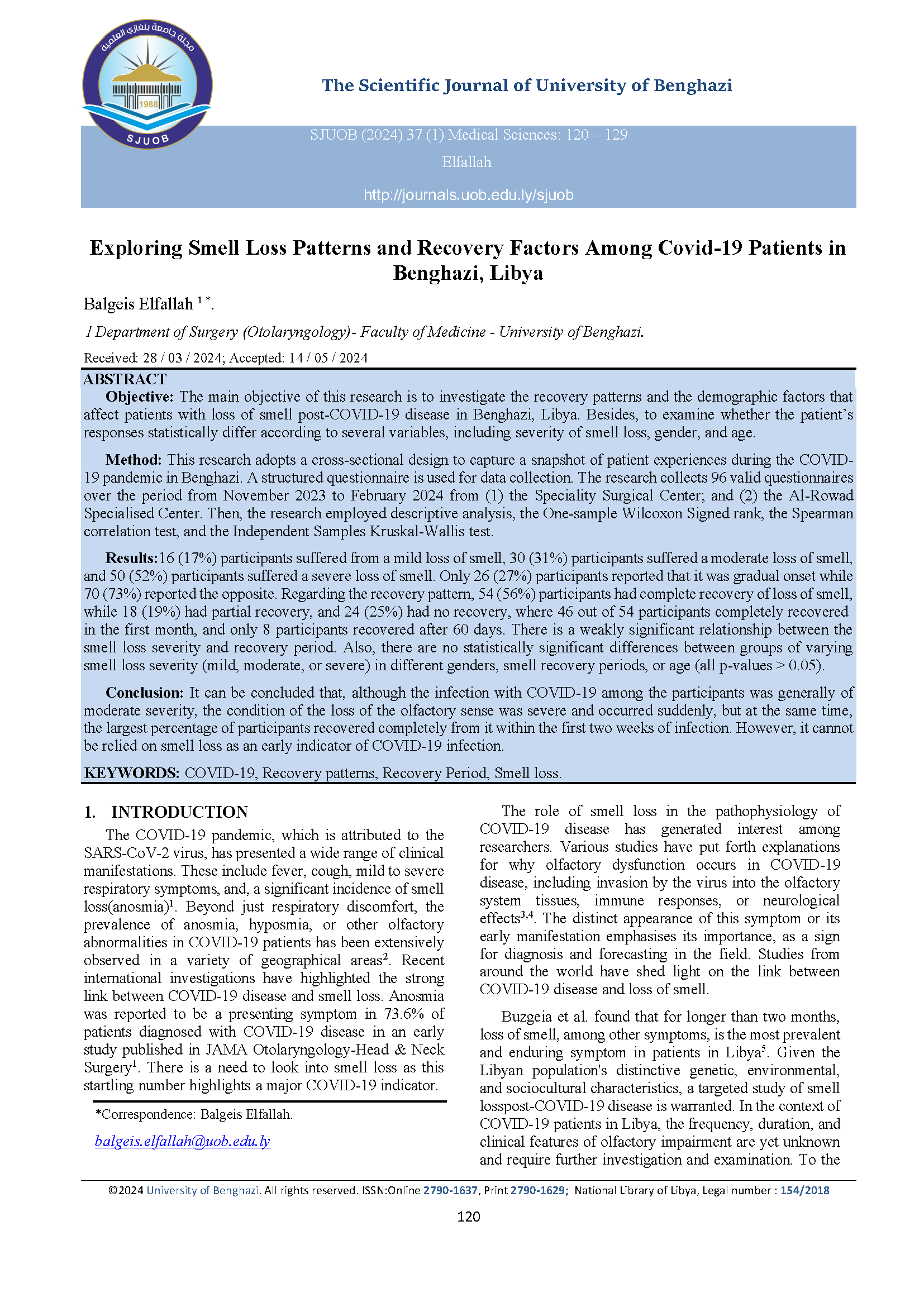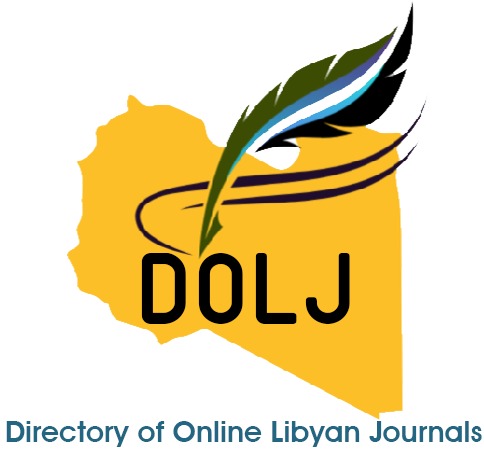Exploring Smell Loss Patterns and Recovery Factors Among Covid-19 Patients in Benghazi, Libya
DOI:
https://doi.org/10.37376/sjuob.v37i1.5946Abstract
Objective: The main objective of this research is to investigate the recovery patterns and the demographic factors that affect patients with loss of smell post-COVID-19 disease in Benghazi, Libya. Besides, to examine whether the patient’s responses statistically differ according to several variables, including severity of smell loss, gender, and age.
Method: This research adopts a cross-sectional design to capture a snapshot of patient experiences during the COVID-19 pandemic in Benghazi. A structured questionnaire is used for data collection. The research collects 96 valid questionnaires over the period from November 2023 to February 2024 from (1) the Speciality Surgical Center; and (2) the Al-Rowad Specialised Center. Then, the research employed descriptive analysis, the One-sample Wilcoxon Signed rank, the Spearman correlation test, and the Independent Samples Kruskal-Wallis test.
Results:16 (17%) participants suffered from a mild loss of smell, 30 (31%) participants suffered a moderate loss of smell, and 50 (52%) participants suffered a severe loss of smell. Only 26 (27%) participants reported that it was gradual onset while 70 (73%) reported the opposite. Regarding the recovery pattern, 54 (56%) participants had complete recovery of loss of smell, while 18 (19%) had partial recovery, and 24 (25%) had no recovery, where 46 out of 54 participants completely recovered in the first month, and only 8 participants recovered after 60 days. There is a weakly significant relationship between the smell loss severity and recovery period. Also, there are no statistically significant differences between groups of varying smell loss severity (mild, moderate, or severe) in different genders, smell recovery periods, or age (all p-values > 0.05).
Conclusion: It can be concluded that, although the infection with COVID-19 among the participants was generally of moderate severity, the condition of the loss of the olfactory sense was severe and occurred suddenly, but at the same time, the largest percentage of participants recovered completely from it within the first two weeks of infection. However, it cannot be relied on smell loss as an early indicator of COVID-19 infection.
Downloads

Downloads
Published
How to Cite
Issue
Section
License
Copyright (c) 2024 The Scientific Journal of University of Benghazi

This work is licensed under a Creative Commons Attribution-NonCommercial-NoDerivatives 4.0 International License.


















